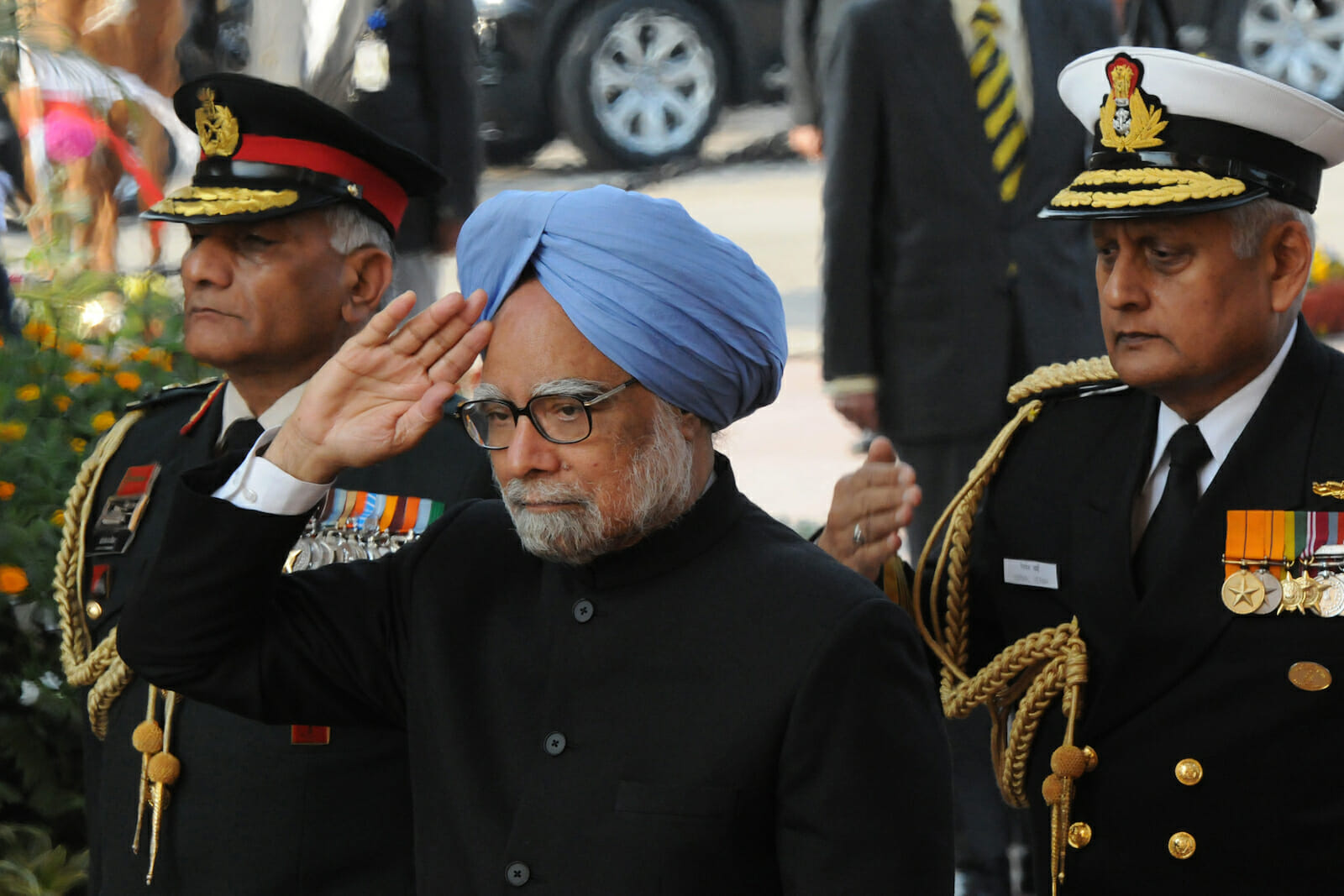
India’s Courage Deficit
Many in the West may not realize it, but India is in the middle of what is shaping up to be a severe economic crisis. The rupee hit an all time low of more than 52 to the U.S. dollar this past week, is down 17 percent this year, and declined more than 7 percent just this month. That is even lower than during the financial crisis of 2009. India’s stock exchange, the Sensex, has lost more than a third of its value in dollar terms this year and now has the dubious distinction of being Asia’s worst performing stock exchange. Profit margins among Sensex companies are at a seven-year low and foreign institutional investors are bailing, taking Indian risk off the table, and looking to invest their funds elsewhere.
What accounts for this dramatic fall from grace for the world’s second most populous country, and arguably the country with the most potential to become a regional economic powerhouse and challenge China’s de facto dominance in the region? A slowing economy, soaring inflation, policy paralysis on the part of the Indian government, and growing pessimism about what the future may bring have converged to create what is becoming a downward spiral. The worst may unfortunately be yet to come, with some economic pundits anticipating the rupee devaluing to perhaps 55 in the coming months, as economic fundamentals remain weak.
During a visit to Delhi and Mumbai last week, I noted palpable concern on the part of a variety of business executives who suggested that the government is unlikely to have the ability to pass much needed reforms and policies that will spur economic growth and send the right message to foreign investors.
If the government is unable to do so now, when it has room to maneuver — given that the next election more than two years away — it seems highly unlikely that it will be incentivized do so closer to the election. Moreover, India needs such change right now, and even if the government did succeed in passing the required legislation, does it actually have the ability to implement change swiftly enough to reverse India’s rapidly increasing descent?
Judging from prior experience, the answer appears to be ‘no,’ as the Indian government does not have a good record at ‘swiftly’ changing much of anything. Rating agency Fitch has given the government the benefit of the doubt, having said last week that it considered India ‘relatively less’ exposed to future global shocks than some other Asia economies. Fitch considers Asia’s largest nations, including India, to have built-in advantages that some smaller nations do not have, such as large indigenous populations, abundant natural resources, and a diversified export base. But can an economy which spends approximately 60 percent of its import bill on oil really be considered ‘insulated’ from global shocks? And does it really matter even if it were genuinely insulated when investors consider the country a difficult place in which to do business?
Consider India’s position in the World Bank Group’s Doing Business 2012 rankings. India ranks 132nd overall out of 183 countries as a desirable place to do business, just above Nigeria and just below the West Bank and Gaza. In several individual rankings, India is near the very bottom.
For example, for starting a business, India ranks 166th, for obtaining construction permits, India ranks 181st, and with respect to enforcing contracts, India ranks 182nd. In fact, India ranks above 100 in six of the ten categories, with the lowest cumulative score of any of the BRIC countries. Not a very inspiring performance for such a large democracy, blessed with so many resources and potential. What chance does the Indian government have of being successful at turning things around in a matter of months when what is really required is a change in long-term performance and market sentiment, which will take many years? This is ultimately the key to India’s short- and long-term success and it must be addressed sooner, rather than later.
It isn’t just foreign investors that are dismayed; Indians are themselves of course quite concerned about rising inflation, rising interest rates, and the investment climate, which are creating uncertainty and fear about the future. What is required to turn things around is a consensus for radical change based on common sense fundamentals, such as embracing the anti-corruption drive currently under way with zero-tolerance, making good governance the hallmark of all business transactions, and streamlining the bureaucracy so that the number of steps required to get anything done is cut in half. None of this is new or particularly unusual, and yet, at the end of the day, this is all that should be required to change market and investor perception. India already has everything else. With the stakes so high, one would think now would be the time to get serious about turning things around.
The Indian people have recently showed great courage en masse in supporting a powerful national anti-corruption campaign. The one ingredient that is missing from India’s political class is courage — courage to break with tradition, to embrace change, and to do what is so obviously necessary and right. The Indian people must demand this of their leaders, since they appear incapable of demanding it of themselves. Numerous other countries have done so, and they had far less going for it than India has. In the absence of such courage on the part of everyone concerned, India will never be able to realize its destiny as a regional and global power. More to the point — in the absence of doing so, India risks slipping further into an economic abyss, which threatens to derail much of the economic progress that was made over the past decade.

